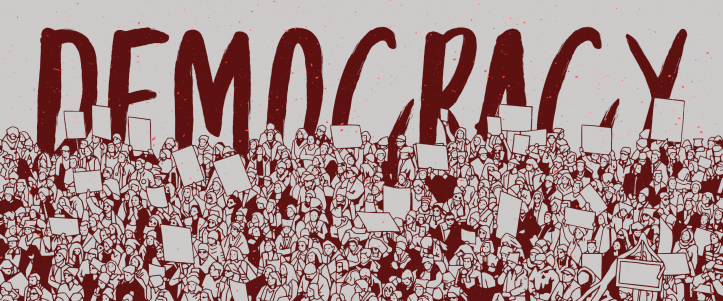What exactly is democracy? Some people say that it’s a form of rule by the majority, or an elected authority, though there are many others who believe that “democrat” means “common person.” Still others believe that “democracy” is nothing more than “system of government made up of representatives of the people and mandated by the majority.” Still yet, other people (some of whom should be named “leftists”) believe that “democrat” actually means “of the people” – just another word for “self-rule.”
However, this last view, that” democracy” is nothing more than self-rule, is the only view favored by those who call themselves “anti-democrats.” Because of this, the debate over what is democracy has reached an impasse. Those who favor the democratic form of government believe that the term refers to a philosophy – namely, that a society would be better off when leaders make decisions for the common good, rather than for themselves. In this manner, those who oppose democracy believe that such systems lead to Machiavellian master-lords who control the masses with an iron fist.

In both cases, it seems, democracy does serve some purpose. A representative of the government makes laws for the population, providing checks and balances against major national organizations, which sometimes seek to undermine the freedoms of smaller governments. When a country has a strong central government, with a strong economy, for example, it is likely that its representatives can govern effectively because they understand the problems facing their fellow citizens, rather than trying to solve them on their own. It is also more likely that a government which is representative of all types of groups and interests, whether they are large or small businesses or labor unions, will be able to properly regulate itself.
Unfortunately, a representative of democracy who believes, “Democracy is self-rule” would soon see that this ideal is no longer realistic. There is no such thing as a free-market for politics and those who support such a system of direct democracy often end up with a monopoly on civic debate, as the elected officials will never be bound by any group or interest outside of themselves. In this way, they cannot truly be said to have exercised true democracy.
Because too many elected officials do not represent the will of their districts, there is too much indifference to the needs of the local population. Too many voters do not show up at election time because they think their representatives know how they want things. Many citizens mistakenly believe that if they choose a popularly endorsed politician, that their views on local business will be respected. That is not how it works. If a local official promotes a certain business over another, he or she will not be likely to see the effects of that decision unless it is popular with all residents in that district.
Some people may say that because a democracy has a written constitution, all citizens are entitled to free speech and other rights. They argue that political debates should be free for all citizens to engage in. This would seem to indicate that what is democracy is also about freedom of thought and expression. However, anyone who believes that to be true does not understand the nature of a constitutional government and the separation of powers inherent in it.
What is really meant by “checks and balances” in this discussion is that there are checks and balances that prevent elected officials from simply picking the people most likely to vote against them for any reason. The checks and balances must be there, in place, for any government plan to work. A government like representative government, where checks and balances to prevent the elected officials from making policy based on personal interest, or whims, rather than their party’s agenda, would likely have less support than one in which laws are made by elected officials strictly according to party positions. It seems to follow that the best system for what is democracy would be proportional representation by population.
One of the last things that an individual should ask when asking the question of what is democracy, is what is the role of the media in promoting democracy. Yes, the media do often promote certain governments and ideas, such as those that promote individual freedom and smaller government. However, they do not promote true democracy, as we know it. They often report corrupt acts and actions, but do not provide much criticism of those actions, or an explanation of why those government actions were necessary or desired. It is up to the citizens, through their elected representatives, to make sure that the media are not allowed to play a role in promoting bad ideas and bad government.